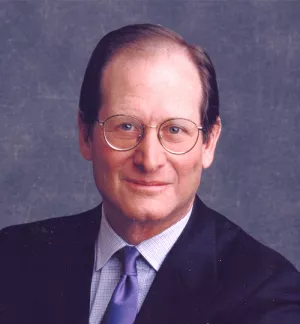Corruption in emerging markets is at the core of key development, globalization, foreign policy and national security problems facing the United States. In recent years, the U.S. has had some success in implementing an international anti-bribery convention. But it has had significant issues when fighting corruption in major counter-insurgency efforts in Iraq and Afghanistan and in new international development initiatives.
As it exits Iraq and Afghanistan and tries to reshape its development programs, the U.S. faces a fundamental question: can it provide realistic leadership, with others in the world community, to help reformers in corrupt nations combat this global scourge?
Fighting corruption in emerging markets is surpassingly difficult. It involves displacing those with malign power. It cannot be initiated and led by outsiders. Corruption pervades and distorts society in nations like Russia and China where the U.S. has great interests. It was a primary cause of the popular uprisings in the Middle East and elsewhere. It remains a huge issue in the emerging markets of Africa and Asia and, especially in failed and failing states. It is a pervasive obstacle to legitimate and transparent economic globalization. And it undermines a key goal of current counter-insurgency military strategy -- the building of a civil society.
At the core of these problems is bribery of public officials, and officials' extortion and misappropriation of funds. In the last 20 years, there has been growing recognition that corruption of this sort has a widespread and insidious impact. It distorts markets and competition; breeds anger, cynicism and discontent among citizens; stymies the rule of law; corrodes the integrity of the private sector; and impairs development and poverty reduction. Bribery, extortion, and misappropriation also help perpetuate failed and failing states -- and sectors of other states -- that are incubators of terrorism, the narcotics trade, money laundering, human trafficking, counterfeiting, piracy and other kind of global crime.
As noted, the U.S. has attempted three primary initiatives against the corruption of bribery, extortion and misappropriation in recent years.
Global Anti-Bribery Conventions
Currently, 37 nations have ratified an Organisation for Economic Cooperation and Development (OECD) anti-bribery convention and enacted national laws comparable to the U.S. Foreign Corrupt Practices Act (FCPA). The OECD convention and the FCPA address an important but limited part of global corruption: prohibiting companies headquartered in the industrialized world from bribing officials in emerging markets. But, in addition to the limited effect (it does not directly address the criminal power structures in less developed countries), more than half the signatories to the convention do not have active enforcement programs, and another quarter have only modest programs. Energetic enforcement by developed world authorities is necessary to pressure their multinational corporations to create an effective, internal anti-bribery culture. Non-enforcement is pernicious protectionism, as nations, eager for trade and jobs at home (especially during a great recession), look the other way at the illicit practices of their corporations and fail to act on their anti-bribery commitments under the OECD convention.
The United States has been by far the most active nation under the convention through muscular enforcement of the FCPA (more than half the cases brought under the convention have come from the U.S. even though it has only 10 percent of OECD exports). The U.S. will continue to have a lead role beyond such prosecutions: in ensuring robust OECD monitoring (but the OECD has no sanctions over inert member nations other than naming and shaming); in pushing major exporters and bilateral partners like France and Japan to move beyond investigations to real sanctions; in helping secure the accession of China, India and Brazil (Russia, South Africa and Israel have recently ratified the convention); and in resisting efforts of some U.S. business groups, like the Chamber of Commerce, to weaken the FCPA in Congress.
Contemporary Counter-insurgency Theory
General David Petraeus's co-authored "Counterinsurgency Field Manual" puts substantial emphasis on political, social, and economic programs as more valuable than conventional military operations in removing the root causes of insurgent conflict. As refined in his famous 2009 report on the status of the Afghan war, General Stanley McChrystal articulated four pillars of U.S. counterinsurgency strategy, one of them being creation of good Afghan governance and effective anti-corruption efforts. McChrystal noted that, in a society where illicit drugs are 30 to 50 percent of the economy, there was extensive corruption and criminality among government and other leaders -- in the economy, in judicial, administrative, and political entities, and in international aid programs. This in turn created overlapping, illicit networks between government, criminal, and insurgent groups that were a well-spring of anger and disillusionment among the population.
Yet, as the United States exits Afghanistan, almost no one would say that the rampant corruption has been reduced. There have been bribery and misappropriation scandals in Afghan banks, in Afghan elections, in administration of U.S. aid funds and in everyday life. Allied anti-corruption experts have been pushed away by the Karzai government. The economy still is dependent on opium. The military was not trained to deal with these complex issues of governance, and the officials from U.S. and other development agencies, despite good intentions, have, in the broad, not effected durable change. In broad summary, the anti-corruption pillar of counter-insurgency has been weak and unstable, just as in Iraq, calling into question the important, non-military elements of the current U.S. counter-insurgency doctrine.
Development
This administration, like most before, has paid lip service to the importance to national security and global stability of international development which spurs economic growth, builds institutions and fights corruption in the less developed world. In the last year, it has launched a number of bureaucratic initiatives, all with an anti-corruption centerpiece. In September, 2010, President Obama issued a Presidential Policy Directive on Global Development that, per the White House, "recognizes that development is vital to U.S. national security and is a strategic, economic, and moral imperative." In September, 2011, the administration launched an Open Government Partnership to support national efforts that promote transparency, fight corruption and empower citizens. Shortly thereafter, the U.S. Agency for International Development (AID) unveiled yet another initiative, Domestic Finance for Development, that will "help developing countries create reforms in tax administration, budgetary transparency and anticorruption." In addition, the U.S. seeks anti-corruption measures at the G-20, and "coordinates" such efforts with the World Bank, other international financing institutions and other industrialized nations' aid programs. And on and on and on.
President Obama claimed that he was offering a new vision of development. Rather than just delivering assistance (education, food, health care), the Administration would seek to aid nations to develop governing capacity to address problems themselves. This is, in fact, hardly a new aspiration. Development agencies have been talking about "capacity building" in less developed countries for decades. But this worthy goal collides with the deep corruption that infects attempts to build legitimate, accountable government in so many emerging markets, not just in failing states but also in rising nations like China and India where corruption is rampant. In fact, only 16 percent of AID's $11 billion in costs of operations in the fiscal year ending in September 2011 were devoted to "governing justly and democratically." And, as the President acknowledged in announcing his 2010 directive, "So we are leading a global effort to combat corruption, which in many places is the single greatest barrier to prosperity, and which is a profound violation of human rights." (Emphasis added.)
Leading a global effort to combat corruption? Hardly. What has been missing in the announcements and implementation of development initiatives is the following:
- A tough analysis of the political and power structures that cause and perpetuate corruption in emerging nations.
- A plausible account of the processes of political, social, economic, and legal change necessary to establish rule of law and transparent/legitimate government in the diverse cultures of varied nations across the globe and at different levels of development.
- An acknowledgment, and then definition, of the limited role that outsiders, like the U.S., can play when stimulus must come from within the developing nation (which is especially difficulty in failed and failing states that pose great foreign policy and national security issues).
- A realistic account of how to fund and staff that limited role, how to set priorities, how to measure progress or failure -- and a recognition of how limited are funds and how contingent are anti-corruption efforts.
Of course, asking and answering such questions would require speaking candidly (undiplomatically) about sovereign foreign nations and telling the truth in a U.S. political culture which demands posturing and bromides.
Beyond humanitarian educational, medical and nutrition foreign assistance, the United States thus has an important if limited role in assisting progressive elements of less developed countries -- when they ask -- to help create sustainable economies and economic institutions and establish legitimate, transparent, accountable government with reduced corruption. (I should add that so, too, the U.S.'s international credibility depends on effectively and energetically fighting street, organized, and white collar crime at home.)
In conjunction with national allies and international organizations, the United States needs to go beyond its successful enforcement against multinational corporations under the OECD anti-bribery convention and its Panglossian public posture on counterinsurgency and development. It needs to articulate a hard-nosed vision and set of initiatives that build upon, and do not ignore, the powerful corrupt forces that frustrate such development and governance world wide. And that do not promise too much. The great conundrum of corruption for well-meaning outsiders like the United States is that each nation has its own unique history and culture and meaningful change can only start from within, often in fraught conditions of political division and conflict.
Heineman, Ben. “Can America Lead the World's Fight Against Corruption?.” The Atlantic, February 3, 2012


